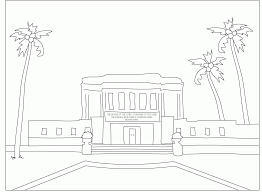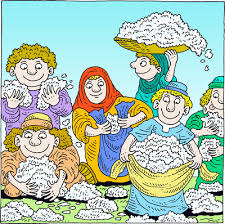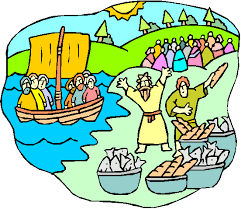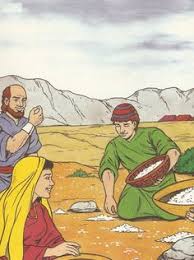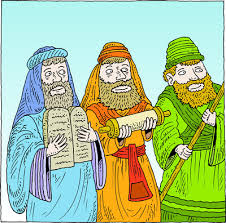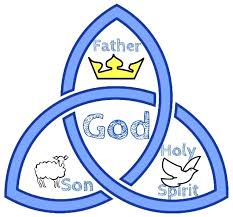John 7:25 – Some of the people of Jerusalem therefore said, "Is not this the man whom they seek to kill?"
As we left off last time, Jesus was in the temple at Jerusalem openly teaching and confronting the religious leaders during the Feast of Tabernacles/Booths. Because this was an important feast, there were Jews present from all over the surrounding rural regions, as well as those of Jerusalem. 
The Jews outside of Jerusalem were obviously ignorant about the plans of the religious leaders to kill Jesus. This was evident in John 7:19-20, where Jesus openly states there is a plot to kill him, but some of the crowd thinks he is crazy.
However, the Jews residing in Jerusalem were well aware that something was going on, as evidenced by their comment here in verse 25. Clearly, they had seen the rage and frustration of the religious leaders as they tried to suppress the growing ministry of Jesus. They heard their leaders adamantly declare that Jesus was a dangerous false teacher who deceived the people. They knew the leaders were scrutinizing everything Jesus said and did in order to charge him with a capital crime – one that carried the death penalty under Jewish law.
The confusion of the Jerusalem Jews seems to center around the inaction of the religious leaders. Had they not declared this man public enemy number one? Hadn't they vowed to arrest him and bring him before the Sanhedrin? Since the man was right here in the temple, supposedly teaching heresy and false doctrine, why didn't they take action against him?
John 7:26 – "And here he is, speaking openly, and they say nothing to him! Can it be that the authorities really know that this is the Christ?"
If this was the man they were trying to silence, why on earth would the rulers simply stand by as he taught in the temple on a holy feast day (or any other day, for that matter)?
The only explanation the Jerusalem Jews can come up with is that the religious leaders had some kind of new evidence confirming that Jesus was the Messiah. They assumed the leaders had not yet made this information public.
 Of course, you and I know full well this was not the case; the religious leaders as a whole never endorsed Jesus as the Christ. So how can we explain their inaction?
Of course, you and I know full well this was not the case; the religious leaders as a whole never endorsed Jesus as the Christ. So how can we explain their inaction?
Simple - it was the providence of God. Although the Jerusalem Jews did not recognize it, God was at work in this situation, delaying the leaders so his divine message could be effectively communicated to the common people. No matter how hard the religious leaders tried, they could not silence the gospel message!
This is a great encouragement to us as well. In our current time, we see more and more instances where the enemy tries to silence or hinder the preaching of the true gospel message. But if we will stand firm and not compromise the life changing gospel, God will provide open doors for his message. When God opens a door, no man can shut it (Revelation 3:8)!
John 7:27 – "But we know where this man comes from, and when the Christ appears, no one will know where he comes from."
These Jews then begin to discuss among themselves the reasons why Jesus could NOT be the Messiah. Their main point was that when the Messiah arrives, no one will know where he comes from. But they DID know where Jesus was from, so therefore he couldn't be the expected Messiah. What a seemingly strange point of view! Where did it come from?
The Jewish scholars developed their point of view from a number of Old Testament scriptures including this one from Isaiah:
Isaiah 53:8 – By oppression and judgment he was taken away; and as for his generation, who considered that he was cut off out of the land of the living.
And this one from Micah:
Micah 5:2 – But you, O Bethlehem Ephrathah, who are too little to be among the clans of Judah, from you shall come forth for me one who is to be ruler in Israel, whose coming forth is from of old, from ancient days.
This is the scripture that is commonly used to show that the Messiah would be born in Bethlehem. But notice the second portion of the verse. The Messiah's appearance (coming forth) would also be from ancient or prior days. Or in the verse of Isaiah, no one would be able to declare his generation/birth/coming.
The early Jewish scholars interpreted this to mean that the Messiah would be born in Bethlehem, then be hidden/taken away or disappear in some manner. Finally, he would appear again from some unexpected place or there would be something so peculiar in the manner of his appearing/coming, that he would be easily identified as the Christ.
As further proof of their interpretation, they used the example of Moses, who was a 'type' of Christ (Acts 3:22, 27). The Jewish reasoning went something like this: Moses was present in Egypt; he was known to all the people. Then, he disappeared for a time (approximately 40 years in Midian) before unexpectedly returning to Egypt and leading the Israelites to the Promised Land.
Again, according to the Jewish interpretation of scripture, Messiah would do the same thing - he will be known, then hidden, and finally appear again in a peculiar manner or from an unexpected place.
In fact, the Jewish Rabbins even incorporated this belief into one of their proverbs: 'Three things come unexpectedly: A thing found by chance, the sting of a scorpion and the Messiah'.
Now that we better understand the teaching these Jews grew up with, we can consider their case against Jesus as Messiah.
There was no doubt that Jesus had come from Bethlehem; all of the Jews accepted that fact (Matthew 5:5, John 7:42). But in their minds, two things prevented him from being the Messiah:
One, they knew were Jesus 'came from'. In other words, they knew his heritage, his lineage, his parents and his siblings (or at least they thought they did). They knew about his flight to Egypt, his childhood in Nazareth and his training as a carpenter.
Secondly, they insist that Jesus did not come from an unexpected place, nor was there anything peculiar in the manner of his appearing/coming. Therefore, he could not be the Messiah.
 However, as we know they were wrong on both accounts! Jesus was the only man ever born of a virgin. If you ask me, that's the most peculiar manner of appearance of any human ever born on earth! On that basis alone, they should have seen him as the Christ!
However, as we know they were wrong on both accounts! Jesus was the only man ever born of a virgin. If you ask me, that's the most peculiar manner of appearance of any human ever born on earth! On that basis alone, they should have seen him as the Christ! Also, despite the testimony of Mary and Joseph, they still believed that Joseph was the father of Jesus. Therefore they erroneously assume they can pinpoint his father and his lineage. But as we know, Jesus was conceived when Holy Spirit overshadowed Mary; Joseph was only the step father of Jesus.
As a side note, many modern day scholars point out that Jesus was probably referencing this very same belief when he told the Jews not to believe anyone who said they found the Messiah in a hidden/obscure place (Matthew 24:23-26).
John 7:28 – So Jesus proclaimed, as he taught in the temple, "You know me, and you know where I come from. But I have not come of my own accord. He who sent me is true, and him you do not know."
Your translation may say Jesus 'cried' rather than 'proclaimed' as our version does. Either way, the meaning is that Jesus raised his voice as he passionately spoke these words to the people. This expresses his earnestness in revealing the truth to them. It also reflects the hardness of their hearts.
Because the Jews had their hearts and minds completely fixated on the natural realm, they felt they knew all there was to know about Jesus – he was Joseph's son, an ordinary carpenter from Nazareth.
But Jesus challenges them to look with spiritual eyes; to judge righteously and not by appearance for he is much, much more than just a humble laborer. He did not come to them under his own authority seeking his own will or glory. He was sent by his true Father God.
Not only was he sent by God in the role of Messiah as a master sends a servant, but he is an actual person of the God head, emanating from God as a beam emanates from the sun.
Furthermore, his Father is 'true' or faithful to his word. For this reason, Jesus could be assured that what he preached in the Father's name was completely true and would eventually come to pass, even if the Jews rejected it.
- The law would be fulfilled.
- The era of grace would unfold and flourish.
- The Gentiles would be welcomed into the kingdom.
- No matter how hard his enemies fought against him, the gospel would prevail and change the world.
Hallelujah, the same is true today!
John 7:29 – "I know him, for I come from him, and he sent me."
The Jews did not know the real Father of Jesus at all.
Jesus, on the other hand, was obviously intimately acquainted with his Father as they both dwelt together (along with Holy Spirit) in heaven prior to the incarnation. Since it was the Father who sent Jesus to earth, Jesus had absolutely no doubt concerning his mission as the Messiah. He knew what he needed to do. He had perfect assurance that he would be successful in providing salvation for all of mankind (Isaiah 53:10).
John 7:30 – So they were seeking to arrest him, but no one laid a hand on him, because his hour had not yet come.
Even though there was a plan to catch Jesus in a punishable/capital offense, the rulers stood by and did nothing while Jesus gave this discourse in the temple. The reason was not as the common Jews thought (that the rulers had accepted him as Messiah). The reason was because God prevented them from doing the evil that was in their hearts. Nobody touched him because the appointed time and manner of his death had not yet arrived. As Matthew Henry said, "Satan fills their hearts, yet God ties their hands".
 Although it may not always seem like it from our point of view, this is still true. Satan wreaks havoc in our world, but he is actually on a short leash. He can only go as far as God allows. God has a master plan for this world and at the correct time, he will release an anointing of his power to his saints. He will lead us into battle against the enemy and the kingdom of heaven will be victorious, despite all efforts by Satan.
Although it may not always seem like it from our point of view, this is still true. Satan wreaks havoc in our world, but he is actually on a short leash. He can only go as far as God allows. God has a master plan for this world and at the correct time, he will release an anointing of his power to his saints. He will lead us into battle against the enemy and the kingdom of heaven will be victorious, despite all efforts by Satan.Sometimes, we have a skewed perception of the power of Satan. In our culture, we think of good and evil being essentially equal in power, and we always hope that good will win. While that makes for an interesting movie or book, it is a completely false concept.
The power of good and evil isn't a 50/50 split, as we subconsciously believe. It's more like God allows Satan to have 0.000000001% of power/authority, but only for a hot minute and only over earth and only because mankind gave it to him in the garden. And even during this short period, Satan's power is not absolute. He can only do what God allows.
Think of it this way: It's like an entire football team made up of two-year-olds playing a game against a team of 25-year-old NFL players. There is no question as to the outcome of the contest. Satan will NEVER defeat his creator, God. Satan will NEVER EVER sit upon the throne which belongs to the Ancient of Days. Satan will NEVER, EVER, EVER destroy the kingdom of heaven (Isaiah 14:12-15). Satan is a defeated foe and the only power/authority he has in your life is what you give him.
John 7:31 –Yet many of the people believed in him. They said, "When the Christ appears, will he do more signs than this man has done?"
Another common belief of the Jews was that the Messiah would work many miracles:
Isaiah 35:5-6 - Then the eyes of the blind shall be opened, and the ears of the deaf shall be unstopped. Then shall the lame man leap as a hart, and the tongue of the dumb sing: for in the wilderness shall waters break forth, and streams in the desert.
Jesus had given abundant evidence of his power to work miracles. Interestingly, the miracles convinced the common people that he was the Messiah, but not the Jewish leaders. Remember, they were enraged when the paralytic was healed on the Sabbath.
John 7:32 – The Pharisees heard the crowd muttering these things about him, and the chief priests and Pharisees sent officers to arrest him.
The teaching and interaction of Jesus with the temple crowd sparked a debate among the Jews regarding Jesus as the Messiah. This was a good thing; many Jews believed in him on that day. Those from more remote regions who were in Jerusalem for the feast would take that idea home with them, and further spread the gospel.
But as far as the Pharisees and priests were concerned, enough was enough! They hastily called together a meeting of the Sanhedrin (which included the Sadducees too) and agreed amongst themselves to send some temple officers to arrest Jesus before the whole nation began to accept him as the Messiah.
John 7:33-34 – Jesus then said, "I will be with you a little longer, and then I am going to him who sent me. You will seek me and you will not find me. Where I am you cannot come."
Who is Jesus addressing in these verses? Some believe he spoke to the crowd, others think he spoke to the officers that came to arrest him, while still others believe he spoke directly to those who were actively opposing him (Pharisees, etc).
In any case, Jesus took this opportunity to let the Jewish community know that his time on earth was drawing to a close (he would be crucified in approximately six months). If they wanted to hear his doctrine and plant the truth of the God in their hearts, they should do so now, while he was still among them.
The statement 'Where I am you cannot come' is easily interpreted. After his resurrection, Jesus will be returning to heaven to sit at the right hand of the Father. The great majority of Jews would reject him and the gospel message. Therefore, they would not be able to find him as they would not be admitted to heaven (John 8:21).
However, the phrase 'You will seek me and you will not find me' is a bit more complex. It refers to the Jewish nation seeking after the Messiah here on earth. The implication is that such severe woes and calamities would come upon them, that they (the Jews) would earnestly seek and desire a Messiah/deliverer to come and save them.
 Sure enough, not long after the resurrection of Jesus, the Jewish nation was almost wiped out when Jerusalem and the temple were destroyed by Titus and his armies in AD 70. It was a horrific war.
Sure enough, not long after the resurrection of Jesus, the Jewish nation was almost wiped out when Jerusalem and the temple were destroyed by Titus and his armies in AD 70. It was a horrific war.You can be sure that at that time (and in the midst of every severe calamity since), the Jews have earnestly looked for the Messiah. Sadly, since he has already come, they look in vain. Even worse, they have also set themselves up to be deceived by anti-Christ.
We also want to note that Jesus describes himself as 'going to him who sent me'. This is a powerful statement which indicates that no one will take his life from him; he will both lay it down and pick it up again (John 10:17-18) at the proper time. The religious leaders and heathen kings have no power over him, except what God allows for his own purposes (John 19:10-11).
Just to be clear, 'You will seek me and you will not find me' does not mean that they would seek for Jesus as savior and not be able to find him. All who call upon the name of the Lord are saved; Jesus does not cast aside any who come to him (John 6:37).
John 7:35-36 – The Jews said to one another, "Where does this man intend to go that we will not find him? Does he intend to go to the Greeks? What does he mean by saying, 'You will seek me and you will not find me,' and, 'Where I am you cannot come'?"
'Greek' is another term meaning Gentile. At the time of Christ, the Jews were widely scattered, living in Gentile nations such as Egypt, Asia Minor, Syria, Greece, Rome, etc (James 1:1). In all of these places they lived in Jewish communities and established synagogues.
The Jews of Jerusalem are wondering if Jesus intends to travel to one of the foreign nations and preach in their synagogue, since the Jews of Jerusalem will not accept his message.
Let me offer you some encouragement and some relief:
In verse 29, Jesus declares that our heavenly Father is "true" or faithful. This means that Jesus could completely trust him because he knew his Father would do exactly has he promised.
We can rely on God's faithfulness as well. He will never falter or fail to keep any of the hundreds of promises he has made to us. God himself declares that he watches over his word to make sure his promises are kept (Jeremiah 1:12). What promises has God given to you? Even if it seems like a long time since the promise was made, don't give up – God is faithful!
Here's some more good news: His faithfulness is not dependent upon us in any way; even when we don't keep our promises, God is still faithful to us (II Timothy 2:15)!
Let me offer you some strength:
If you think the world is in a hopeless situation, think again. God is in control and nothing is impossible for him. He wants to partner with us to bring change upon the earth. So the best thing you and I can do is to fully commit ourselves to being good soldiers in the army of God.
Let's take up the armor God has provided for us, and follow as he leads us into battle by his Spirit. Let's pray for the sick, cast out demons and set captives free by sharing the good news of the gospel. As we fight God's battles, he will provide all the strength and resources we will need!

